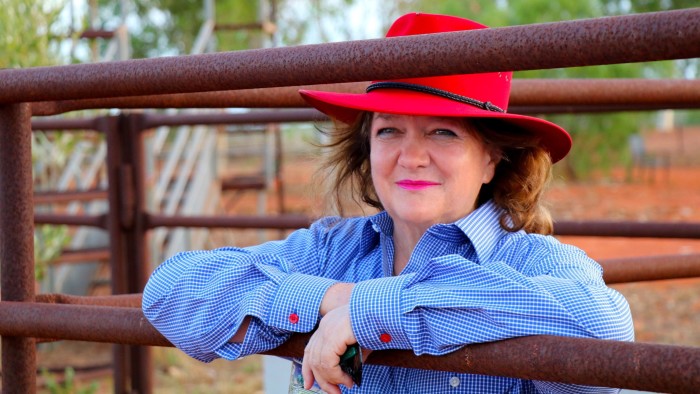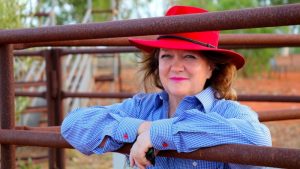Australia’s richest woman wins vote for controversial Canadian coal mine

Unlock the Editor’s Digest for free
Roula Khalaf, Editor of the FT, selects her favourite stories in this weekly newsletter.
Australia’s richest person has won community backing to open a coal mine in Canada following a bitter five-year battle punctuated by allegations that the fossil fuel lobby secretly backed citizens’ groups ahead of a vote in the local town.
Gina Rinehart, a prominent supporter of US president-elect Donald Trump, spent millions of dollars over five years promoting the project as an economic boom for the coal-mining region, despite a ruling by local regulators in 2021 that the project was “not in the public interest.”
In heavy snow on Monday, nearly half of the 6,000 residents of Crowsnest Pass, in a scenic rocky patch of Alberta’s south-west, voted in a non-binding plebiscite in favour of restarting the metallurgical coal mine at Grassy Mountain.
The final count found that 72 per cent were in favour of Rinehart’s Northback Holdings’ proposal to restart the mine, which closed in 1983.
But opposition to the nearly 1,521 hectare open pit mine remains in spite of the successful vote. The neighbouring municipality of Ranchland fears the project would harm the environment without providing an economic benefit.
Ahead of the vote, local media group Great West Media published an investigation alleging Citizens Supportive of Crowsnest Coal, a citizens’ group campaigning in favour of the mine reopening, had not fully disclosed its connections to a prominent oil and gas lobby group.

CSCC member Carmen Linderman said the group had full faith in Alberta’s regulator to ensure the mine would be environmentally friendly. “I see the need for [an] economic boost for our town, there’s no job opportunities here,” she said.
She also downplayed connections to energy-sector lobbyists “who were hired to help with the CSCC website”.
For years the Grassy Mountain mine, which is forecast to produce 4.5mn tonnes of steelmaking coal per year, has divided the region.
Rina Blacklaws, Northback’s spokesperson, did not return calls or emails for comment.
Rinehart, who recently attended Trump’s election party at Mar-a-Lago, is a controversial mining magnate who has amassed numerous iron ore, coal and farming assets in Australia and elsewhere.
She has supported rightwing think tanks with climate sceptic views, become embroiled in a family feud over the family fortune and urged Australians to work hard to compete with Africans willing to labour for $2 a day.
She has regularly crossed swords with environmentalists. Senex Energy, a company in Australia co-owned by the mining magnate, is facing opposition over plans to develop and operate coal seam gas wells in Queensland.
Those opposed to the Grassy Mountain mine point out that the Alberta Energy Regulator in June 2021 rejected an application for the coal mine’s reopening as “not in the public interest”, according to an AER statement.
In March 2022, Alberta’s former energy minister, Sonya Savage, issued a ministerial decree that “no new applications will be accepted” for coal exploration, with an exception for “advanced coal projects”.

But earlier this year after a change of provincial government, the new Alberta energy minister Brian Jean wrote to the AER to inform it that the site had been designated an “advanced coal project”. Northback resubmitted its applications for exploration permits in April.
The AER is scheduled to hold a public hearing on Northback’s drilling permits on December 3 and another on January 14.
Alberta’s Court of Appeal in August granted Ranchland municipality the right to appeal the AER’s decision to re-examine the application.
The court accepted the municipality’s concerns, including whether the coal project should be considered “pre-existing” after it had been rejected by the regulator in 2021, but has yet to set a date for a hearing.
“It would be inappropriate for the minister to comment,” said a spokesperson for Jean.
The Canadian Parks and Wilderness Society, a charity, has protested against the mine on environmental, legal and regulatory grounds.
“This whole process is so messy and certainly made more messy by the referendum,” said Katie Morrison, CPAWS executive director.
Climate Capital

Where climate change meets business, markets and politics. Explore the FT’s coverage here.
Are you curious about the FT’s environmental sustainability commitments? Find out more about our science-based targets here
#Australias #richest #woman #wins #vote #controversial #Canadian #coal





